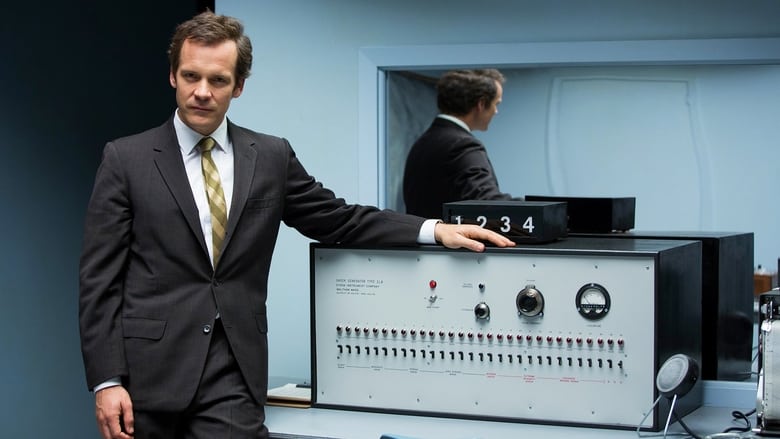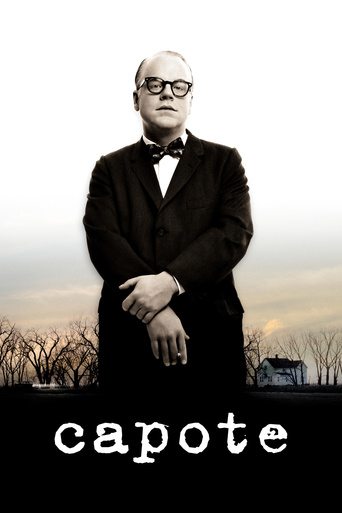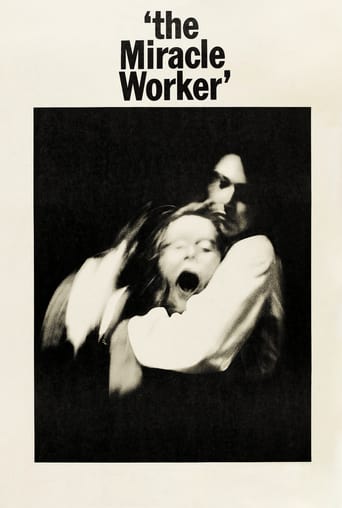

Experimenter (2015)
Yale University, 1961. Stanley Milgram designs a psychology experiment that still resonates to this day, in which people think they’re delivering painful electric shocks to an affable stranger strapped into a chair in another room. Despite his pleads for mercy, the majority of subjects don’t stop the experiment, administering what they think is a near-fatal electric shock, simply because they’ve been told to do so. With Nazi Adolf Eichmann’s trial airing in living rooms across America, Milgram strikes a nerve in popular culture and the scientific community with his exploration into people’s tendency to comply with authority. Celebrated in some circles, he is also accused of being a deceptive, manipulative monster, but his wife Sasha stands by him through it all.
Watch Trailer
Cast


Similar titles
Reviews
It's 1961 Yale University. Stanley Milgram (Peter Sarsgaard) is conducting a social experiment with assistants James McDonough (Jim Gaffigan) and Alan Elms. Test subjects are told to deliver electric shocks to a stranger played by McDonough. The shocks are actually fake and most participants obey. Stanley meets and marries Sasha (Winona Ryder). He continues to teach and work on other experiments like lost letters, and six degrees of separation. His publication of Obedience to Authority leads to criticism of his findings and the ethics of the experiment itself.This is a solid biopic. The experiments are intriguing and even compelling at times. For some, the Obedience experiment may be eye-opening. Personally, I didn't realize the origins of the six degrees of separation. The movie feels informative but lacks real tension or danger. Sarsgaard's performance is mannered and expertly done. Jim Gaffigan adds a little bit of needed humor. I wouldn't mind fictionalizing a nemesis for Milgram even if it's only in his head. Filmmaker Michael Almereyda literally puts an elephant in the room and references Adolf Eichmann. He could have easily used a Nazi as Milgram's imagined enemy. Almereyda does plenty of visual experimentation to liven up the movie but sometimes, the scenes are better off with a straight forward telling. The elephant in the room is too cartoonish and on the nose. The rear-projection driving is unnecessary. The black and white photo background doesn't work if the scene is supposed to be real. At times, Almereyda seems to be going out of his way to be inventive.
I have loved psychology since high school and often wish I had pursued a career in the field, but I didn't so I have to get my fix elsewhere. We were lucky to have received two movies focused on the subject of famous psychological experiments last year (EXPERIMENTER and THE STANFORD PRISON EXPERIMENT) and, while I was more interested in a dramatization of the Stanford experiment, my local stores only carried the other. EXPERIMENTER is a strange little docudrama that details the work of Stanley Milgram (Peter Sarsgaard), most prominently his experiment on obedience. For those unfamiliar, the subject of the experiment would act as the "teacher" and ask a series of memory questions to the "student". Interacting in separate rooms via a one-way intercom, the teacher would be commanded to shock the student with increasing voltage for every wrong answer until the student (a member of Milgram's team) is heard grunting in pain, demanding the experiment be halted, and eventually goes silent. Milgram's goal was to see how many people would continue the experiment knowing they are causing pain to an innocent subject and how far people would allow the voltage to climb before refusing to continue. The results of his experiment were considered shocking and the whole event remains controversial; EXPERIMENTER delves into Milgram's views on the importance of the results, the question of whether his experiment was ethically sound, and how this one experiment continued to resonate throughout his career until his eventual death late in 1984.EXPERIMENTER is a film for a niche audience and I can see most people either bored or put off by director Michael Almereyda's creative choices. Psychology is a hard topic to make too exciting. Interesting, sure, but not exciting. The most drama you find in the film comes from the negative reactions to Milgram's experiment. We're treated to a trio of women being given the chance to confront Milgram after the fact where they can voice the psychological concerns of participants deceived into thinking they are harming another human being, and we see Milgram lose out on tenure at Harvard because the professional world didn't respond much better to what his experiment said on human nature. For me, all that was the interesting stuff. About halfway through the movie, we shift gears to focus on some of Milgram's other, less controversial experiments. It's all mildly interesting and serves to show that Milgram wasn't completely about exposing mankind's less popular features but I was hoping we'd get more drama from the obedience experiment and the aftermath. I suppose there might not have been enough material for such interesting dramatic piece and maybe we got a glimpse at the worst of it. We did get a fun visit with Milgram to the set of the TV movie "The Tenth Level" where William Shatner (Kellan Lutz) and Ossie Davis (Dennis Haysbert) are recreating the experiment in true '70s cheese fashion. It's all somewhat intriguing but the movie does lose a lot of steam.Apparently some elements of Almereyda's film were met with laughter when touring the festival circuit. You see, he's incorporated some weird visual elements that feel completely out of place. It all starts when we see Milgram's first monologue to the audience as he walks down the hall outside his experiment room, and an elephant comes around the corner and shambles up behind him. I assume it's some "elephant in the room" visual metaphor but I honestly didn't know what it was meant to tell me. It seemed to me that the character of Milgram was completely frank with the audience (and everyone in the film) and that there weren't any issues left unaddressed. Then we have bizarre uses of background projection (not just for driving scenes an entire afternoon tea scene is set in front of a weird background projection) and a distractingly bad false beard Milgram acquires when we reach the late 70's or so. Why go weird? Why not play this as a straight drama? It started feeling like we were watching an odd stage play. A stage play with an admirable cast though. Sarsgaard does a fine job as MIlgram and we've got Winona Ryder as his wife Sasha. Comedian Jim Gaffigan has a minor role as the "student" in Milgram's team and his subjects have a steady stream of cool cameos including John Leguizamo and Anton Yelchin. As inexplicably strange as the movie is and despite the lull in the middle, EXPERIMENTER has enough positive notes to make it well worth a view for anyone interested in the subject matter.
The movie tells the story of the (in)famous Milgram's experiment, a fascinating study of human behavior and how easy it is to influence people to do what you want - even horrible things - when you're in a position they perceive as commanding (which may help explain the behavior of the Nazis in WWII).It's a pretty accurate recreation of the experiment and its outcome, but films like this (e.g.: The numerous films made about the Stanford prison experiment) raise the question: why watch a recreation when you can watch the REAL thing on YouTube?For some odd reason the director chooses, at random occasions, to break the 4th wall or use obvious old B&W rear-screen shots at random places. Very strange decision that throws you out of the movie and seems totally out of place.The first half of the movie is OK, but then it loses some of the focus.Better watch the footage from the actual experiment if you haven't seen it yet.
In 1961, famed social psychologist Stanley Milgram conducted a series of radical behavior experiments that tested ordinary humans willingness to obey authority.Although Almereyda was aware of Milgram's work, it wasn't until his girlfriend began taking a class on him that Almereyda became interested. Subsequently, the director found himself reading Milgram's "Obedience to Authority: An Experimental View". According to Almereyda once he started reading, he "instantly saw how filmable it was" becoming increasingly interested in making it into a film the more he went on.I am fairly knowledgeable on Milgram's work. Through both philosophy classes and psychology classes, I have read his book and watched the original film of the obedience experiment (which bears a great many similarities to the film here). I love how they went beyond that and explored his other experiments and what they saw about humanity. And I had no idea that Shatner had appeared in yet another film version (making this movie sort of meta in a way).














